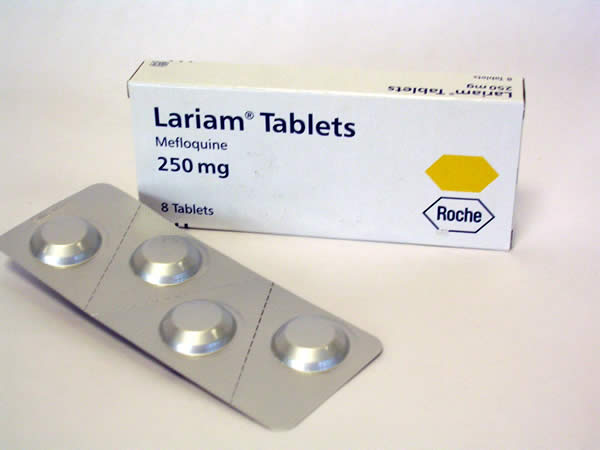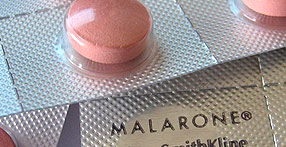Your concerns may be:
Chikungunya (bended walker in Swahili), Dengue (breakbone fever) and Zika are re-emerging mosquito borne diseases and are a worldwide problem even in Singapore & Australia (Japanese Encephalitis 2022).
Risk times for the zika and dengue biting mosquito are usually during the day; the JE risk is dusk to dawn whereas the malaria biting mosquito feeds between dusk or dawn.
There are vaccines that can prevent some of these diseases eg Japanese Encephalitis and Dengue for previous dengue infected travellers. A new dengue vaccine is expected to be available next year.
Most persons (99%) who catch JE do not get sick, but those who do get sick get VERY sick. We cannot tell who is at risk of becoming gravely ill. The problem is that in those who do get very sick, there is no direct treatment for this virus. Of those who fall ill, about 1/3 die, 1/3 are brain-damaged and 1/3 survive.
Risk of contracting JE is cumulative, and consideration should be given to lifetime likely risk, not just the trip at hand i.e., people who visit locations multiple times for short periods.
Avoid all bites and use insect repellents on exposed skin & light coloured clothing impregnated in permethrin. Look for insect repellents that contain DEET (diethyl-toluamide), picaridin, IR3535, oil of lemon eucalyptus.
In general, repellents protect longer against mosquito bites when they have a higher concentration of any of the active ingredients. However, concentration of > 50% do not offer a distinct increase in protection time. 20-50% DEET is ideal, however 80% strength may be advised under certain conditions e.g. water based activities (NB: very high DEET concentrations may blemish your ‘gear’).
If you are using a separate sunblock and insect repellent; apply the sunblock first, wait 15 minutes then apply the insect repellent.
If you are travelling with a sleeping bag liner or a sleep sheet, then do soak or spray it with permethrin prior to travel to avoid bed bug infestation.
We diagnosed the first human case of monkey malaria (plasmodium knowlesi) in 2010 in New Zealand; in a traveller returning from Asia.
There is no malaria vaccine or simple anti malaria medication script, you have to weigh the pros and cons and we help you make the decision. Far too many and inappropriate prescriptions of doxycycline are issued by GP’s. The actual ‘real-time’ risk of malaria depends on the area you are visiting, taking note of the 5 different strains of the malaria parasite, transmission, recent outbreaks, climate, altitude, duration and type of travel.
The risk within a country varies according to the regions visited and even between travellers.
The decision whether to use preventative drugs or not will be based on discussion with you and our doctor about the relative malaria risk and the area to be visited, as well as the potential side effects and the cost of the available anti-malaria drugs. Medication will only be dispensed if you absolutely need it. We do not provide prescriptions for medication that we stock. If you require a ‘malaria consultation only’ the fee with our doctor costs $75 per traveller (~ 15 min). You can discuss your options + travel medication & kits and collect from our reception. .
Standby emergency treatment (SBET) for malaria is an option for some travellers (with self testing rapid diagnostic kits).
A MUST READ IF YOU ARE PLANNING TRAVEL TO POSSIBLE MALARIA AREAS
Chloroquine, Doxycycline, Lariam, Malarone, Kodatef & Primaquine

Chloroquine. For certain areas in Central America (very limited use)
Use is restricted to plasmodium vivax risk areas e.g. Central America.
Cost: $2.30 per tablet
Dosing: take 2 tablets once a week after a meal with plenty of fluid, starting 1 week before entering a risk area, while in the risk area and for 4 weeks after leaving the risk area.
2/ DOXYCYCLINE : daily dosing

Doxycycline 100mg: ‘OFF LABEL’ $0.85 per tablet
Dosing: take 1 tablet daily after a meal with plenty of fluid, starting 2 days before entering a risk area, while in the area and for 4 weeks after leaving the malaria risk area.
This drug is an antibiotic of the tetracycline group and should be taken with plenty of food and liquid, otherwise it may cause nausea and heartburn. 1 in 20 people will sunburn more easily while taking it (increases with altitude and water based activities). The photosensitivity usually manifests as an exaggerated sunburn reaction. It does alter the normal gut flora and microbiome and can lead to an overgrowth of other ‘nasties’ in the colon and skin.
Children or pregnant women cannot use it. It may interfere with the oral contraceptive and may predispose to thrush so women should carry anti-thrush treatment.
3/ LARIAM : weekly dosing

Mefloquine 250 mg. For those travellers that want a simple weekly regimen.
Cost: $16.00 per tablet (in stock)
Dosing: take 1 tablet once a week on the same day each week, after a meal with plenty of fluid. Start 1 week before entering a risk area, while in the area and until 4 weeks after leaving the risk area. Infant dose is 5mg per kg.
Adults: if you have never used this medication previously , it ought to be trialed once for a few weeks well before travelling.
This is a single malaria drug (mefloquine). Avoid heavy alcohol consumption for 24 hours before and after the weekly dose. People with epilepsy, psychological illness, abnormal heart beats, pilots, scuba divers should avoid this drug. If minor side effects occur try splitting the dose e.g., take ½ tablet on Sunday and ½ tablet on Thursday. If major symptoms occur such as dizziness, agitation, depression or racing pulse occur, stop the drug and seek advice. Children can take according to weight. Safe in pregnancy.
4/ MALARONE (adult + junior) : daily dosing

Atavaquone/Proguanil. This is the latest anti-malarial.
Cost: $9.50 (adult) per tablet
Dosing: 1 tablet daily, start 2 days before entering the risk area, while in the area and continue for 7 days after leaving the area.This is a new fixed combination anti-malarial and is the most effective for certain strains of the malaria parasite and has the least side effects (and mild).
NB: For those travellers that have used malarone, please don’t erroneously conclude that you will NEVER take this efficacious antimalarial again, because of a coincidental illness like gastritis/gastro-enteritis. For you we advise you take a short trial at home.
5/ KODATEF (Tafenoquine) : weekly dosing
Cost: $15 per tablet
Before entering the malaria area take 2 tablets once daily for 3 days.
Then 2 tablets once weekly on the same day of the week, starting 1 week after the last dose before entering the malaria area.
After leaving the malaria area take 2 tablets within 1 week of returning. This day should be the same weekly day you took the tablets while in the malaria area.
NB: you will need a once off blood test before you use this medication to ensure you don’t have a blood enzyme deficiency (cost ~ $89)
6/ PRIMAQUINE : daily dosing

Cost: per tablet
Dosing: take daily, starting 2 days before entering the risk area, while in the area and continue for 7 days after leaving the area
Some travellers get it and some don’t. They say it runs in your ‘jeans’! ![]() Up to 1-in-2 travellers may experience Travellers’ Diarrhoea during their 2 week vacation. Usually the diarrhoea occurs during the first week of vacation, last 3-5 days, but about 10% of diarrhoeas can develop into irritable bowel disease. We will advise you on strategies to avoid food and water borne illness, and show you the latest safe and healthy products. There is an oral vaccine Dukoral available that provides protection against the common ‘tummy’ bugs (cost $100 per dose)
Up to 1-in-2 travellers may experience Travellers’ Diarrhoea during their 2 week vacation. Usually the diarrhoea occurs during the first week of vacation, last 3-5 days, but about 10% of diarrhoeas can develop into irritable bowel disease. We will advise you on strategies to avoid food and water borne illness, and show you the latest safe and healthy products. There is an oral vaccine Dukoral available that provides protection against the common ‘tummy’ bugs (cost $100 per dose)
Gastric probiotics are ineffective if kept above room temperatures of 23 degrees. Most need refrigeration to maintain active bacteria and are inactivated by hot climates.
P.S: Bottle water is only as good as the country that it is made in, so best to use personal water filters e.g. Aquamira which are great for the environment and cost effective. Many bottled water brands in developing countries will fail western quality testing standards for consumption.
Do:
Drink safe water, soft drinks, bottled fruit juice, alcoholic beverages without ice and hot beverages
Drink pasteurised, properly refrigerated milk and dairy products
Eat fruits and vegetables that are freshly peeled or cooked
Eat foods that are recently cooked and piping hot
Don’t:
Drink tap water or ice cubes
Eat fruits that don’t need peeling
Eat uncooked vegetables or salads
Eat raw or undercooked meat, fish or shellfish
Eat or drink unpasteurised or unrefrigerated dairy products
Cook it, boil it, peel it – easy to remember but impossible to do!
NB: Hygiene of developing countries is relative; how many bidets are there in New Zealand?
- Never leave home without a medical kit, the least is a gastro medical kit
- Travellers Diarrhoea is the commonest ailment affecting travellers, and even though you may be travelling 5 star, it is sensible to carry a medical pack
- Our lightweight, compact, cost-effective medical kits will be personalised for you, with proper instructions, a ‘flow chart’ guide and a customs letter. Our travellers find them very useful and “it’s like having a doctor with you”
- Types of medical kits: Gastro, Gastro Plus, Travel, or we customise to your needs
- Please follow the ‘flow chart guide’ or you can complicate travellers diarrhoea if you medicate inappropriately
- The flow chart guide is only provided with complete medical kit purchases
- The medication we supply have long expiry dates of between 1 – 3 years
- You will need to consult our travel doctor if all you require is a medical kit as it contains scheduled medication (medical kit appointment $35)
- We don’t provide scripts for medication that is available at the clinic
Please note that some ‘ tummy bugs’ in certain areas of the world are resistant to commonly prescribed antibiotics in New Zealand ie. you have to have an understanding of worldwide gastrointestinal micro-organism resistance patterns to prescribe appropriately.
Consider carrying your regular essential medications in two lots in separate suitcases.
You should purchase your medication before travel. Drugs purchased overseas may not be manufactured according to New Zealand standards and may not be effective. They also may be dangerous, contain counterfeit medications or contaminants, or be combinations of drugs that are not safe to use.
If you are ill abroad and need medication, we cannot send you a prescription as our doctors licence is only for New Zealand.
If you are not one of our regular travellers and only require a medical kit, then please book a ‘medical kit’ appointment – $35. Our regular travellers can ‘top up’ any items in the medical kit (our travel doctor must have seen you in the last 2 years).
NB: Once medication, vaccines or medical kits are dispensed, they cannot be returned. We do not issue prescriptions for any of our specialised travel or gastro medical kits.

Gastro Kit
This is the minimum that you will need while abroad for short trips. It covers gastro, urinary tract infections, cystitis and painful periods – $50. Please note that some areas in the world have high campylobacter resistance eg S.E.Asia and you will need appropriate antibiotics.

Gastro Plus Kit
In addition to the Gastro Kit, the extras in this kit cover giardia, dysentery, nausea and vomiting ($85).

Travel Kit
In addition to the Gastro Kit, this comprehensive kit contains extra medication to cover you for most of the reasons why you will need to see a doctor abroad – $100 Extras are: anti-histamines, anti-inflammatories, additional antibiotics and sleeping tablets.You can optimise this HEAD to TOE kit by including medication for giardia and constipation.
Our website gives you a general guide of what you would need to protect yourself. However what you really need depends on ‘You, Your health, Your trip’ and this will be discussed at the time of your consultation with our travel doctor.
However, we do have ‘Country Reports’ where you can select the country you are travelling. This will give you a general idea of what you need to consider for your trip
There is no way of predicting your response to travel to altitude (either trekking, bus or flights to cities e.g. Cusco). Even the experienced sherpa (or triathlete) can develop altitude sickness on his first season climb. The risk of altitude illness is entirely based on the rate of ascent, and not the overall altitude reached.
It is remarkable how many travellers believe that a ‘headache’ at altitude is normal, it is not ! If you are carrying altitude medication, always carry a package insert in the actual medication container to refer to so you know when, how to use and how to titrate so you achieve the optimum therapeutic dose (with the least side-effects).
Preventative medication include gingko, acetazolomide and dexamethasone. The treatment of altitude sickness is descent, however some of drugs can be used as treatment .
No medication is as effective as slow, graded ascent and with good acclimatization.
Denial is also common – be willing to admit that you have altitude sickness, as that is the first step to stay out of trouble.
Travel can cause swelling of the feet and ankles. This is because sitting for long periods of time, overeating, cabin air pressure and dry cabin air allows the blood to pool in the lower legs which can lead to more serious issues, i.e. blood clots.
To ensure maximum comfort, reduce your risks and therefore gain greater enjoyment from your travels, we suggest the following:
- Medical compression stockings ie not ‘flight socks’ (class 1 minimum ie. 20mm Hg pressure at the ankle), properly fitted by our trained staff can help you avoid the tired, restless leg syndrome, jet lag and puffy ankles.
- It is important to choose your compression stockings according to your calf size : ankle, calf and below knee measurements (not just on a shoe size).
- Poorly fitted compression stockings can do more harm than good.
- Most importantly is to have your risks factors evaluated.
Please feel welcome to come in and view our wide range of compression stockings for both men and women available in fashion colours.
NB: the ‘white coloured’ hospital compression stockings are ideal for the recumbent position ie. post surgery (lying in bed), however are not advisable for ambulation (upright position and walking)
Click here for medical compression stockings (class 1- 20mmHg pressure), costs from $90
Blood clots can occur in travellers with specific risk factors. Immobility for more than 4 hours in a car, bus, train or aircraft may increase the risk of blood clotting. It is a myth that DVT only occurs in economy class, business class passengers are also at risk.
Some travellers are at greater risk:
- Anyone with a family history of abnormal clotting
- Pregnant travellers or those on a contraceptive pill
- Anyone in a plaster cast
- Overweight travellers
- Travellers with extremes of height
- Elderly travellers
- Smokers
- Diabetics (especially insulin dependent)
- Travellers with underlying medical problems e.g. cardiac, hypertension
We will assess and advise what is the most appropriate preventative measures for you, and the very high risk traveller may need to consider heparin injections. Aspirin will not prevent DVT’s.
The decision to travel is individual and each case is unique and depends on a multitude of factors. Some travel vaccines are safe and will protect the pregnant woman and her yet to be born child, and can be given to babies as young as 9 months.
There are other issues e.g. mosquito born infections, food and water concerns, medications, and these will need to be addressed.
The risks and benefits will be examined in each traveller case and discussed at the time of the appointment.
Travel insurance is essential for any overseas trip, especially if you’re travelling to the US.
Buy travel insurance as soon as you buy your tickets
Be upfront with your insurer ie. advise them of any pre-existing medical condition and activities planned esp. if hazardous
Don’t assume that your credit card travel insurance policy automatically covers you. It’s offered ‘free’ to holders of some Platinum & Gold Credit cards. Some banks limit cover to 35 days, maximum 90 days. AA does provide cover for age > 80 with a Travel Risk Assessment Form
Make sure you read the fine print, some policies have the wording of their policies online. Policy cover is based on limits associated with medical cover, loss of luggage, cancellations, personal liability, evacuation, rental vehicle excess and adventure activities.
If you develop any symptoms, no matter how mild, you should see us as soon as possible after you return. We have the expertise to quickly and efficiently ascertain and pinpoint your post travel illness. Delayed or incorrect diagnosis and treatment can lead to long term medical complications e.g. depression, fatigue, bowel, joints etc.
Travellers who acquire certain viral, bacterial or parasitic infections abroad may become ill as late as six to eight weeks after returning home.
Some diseases may take even longer to manifest themselves. Malaria, for example, may not cause symptoms for as long as six months to a year after infection.
